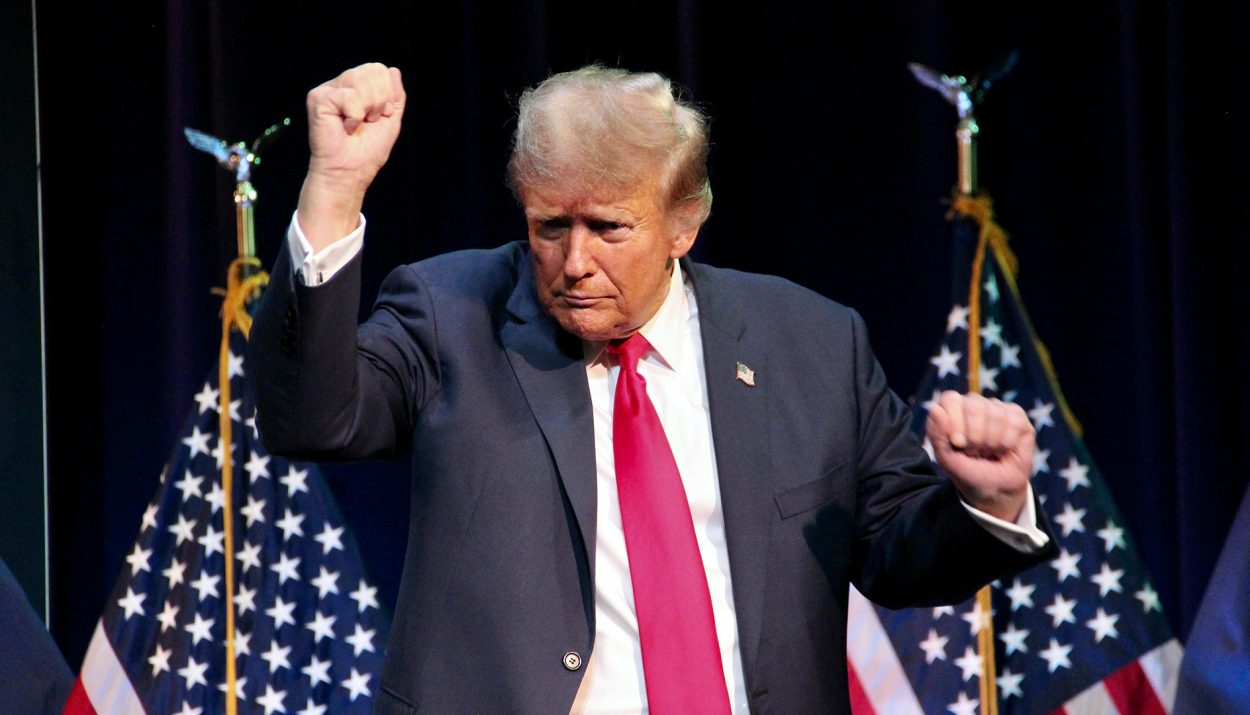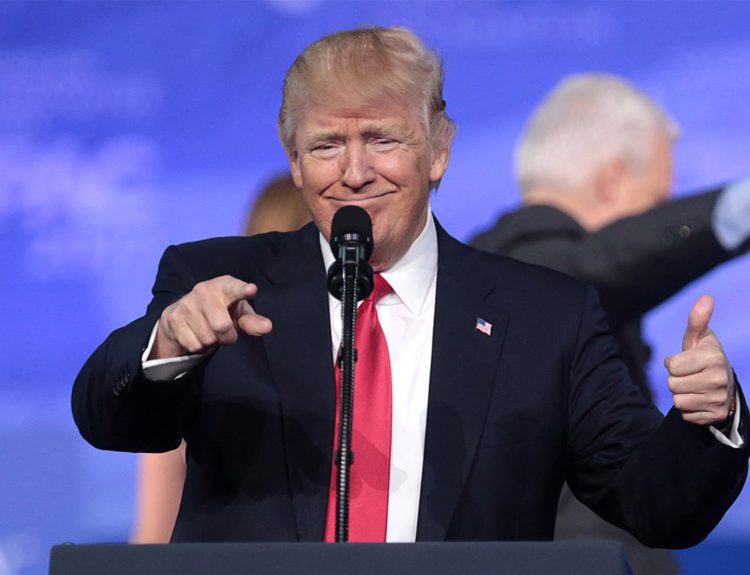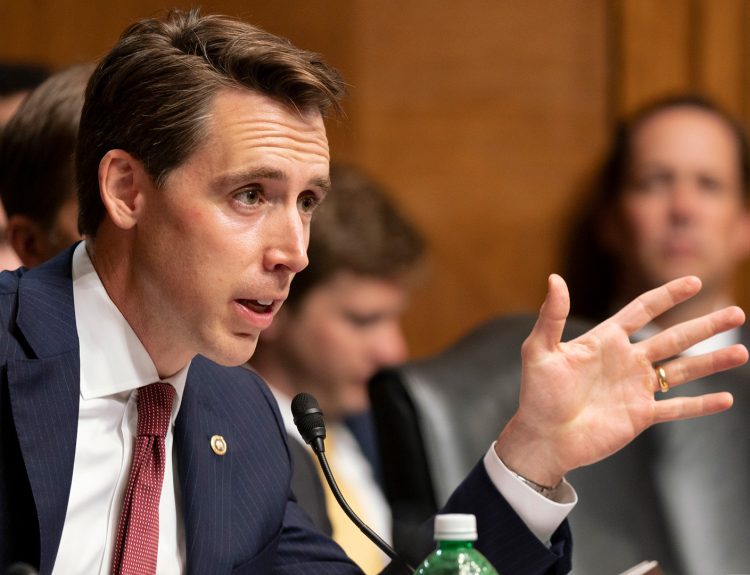Former President Donald Trump continues to challenge his election subversion charges in Georgia after a judge’s decision to reject his attempts to dismiss the indictment on First Amendment grounds.
In a court filing on Monday afternoon, Trump, along with 13 of his co-defendants, asked to appeal Judge Scott McAfee’s ruling from last week, which rebutted the former president’s effort to dismiss the case on the basis that it infringes on the defendant’s freedom of speech.
Prudent To Seek An Appellate Review Of McAfee’s Verdict
The filing states that ‘it is prudent’ to seek an appellate review of McAfee’s decision, adding that the defendants believe “their arguments are well-founded and fall squarely within the almost absolute First Amendment protections in the context of their core political speech regarding the 2020 Presidential election contest.”
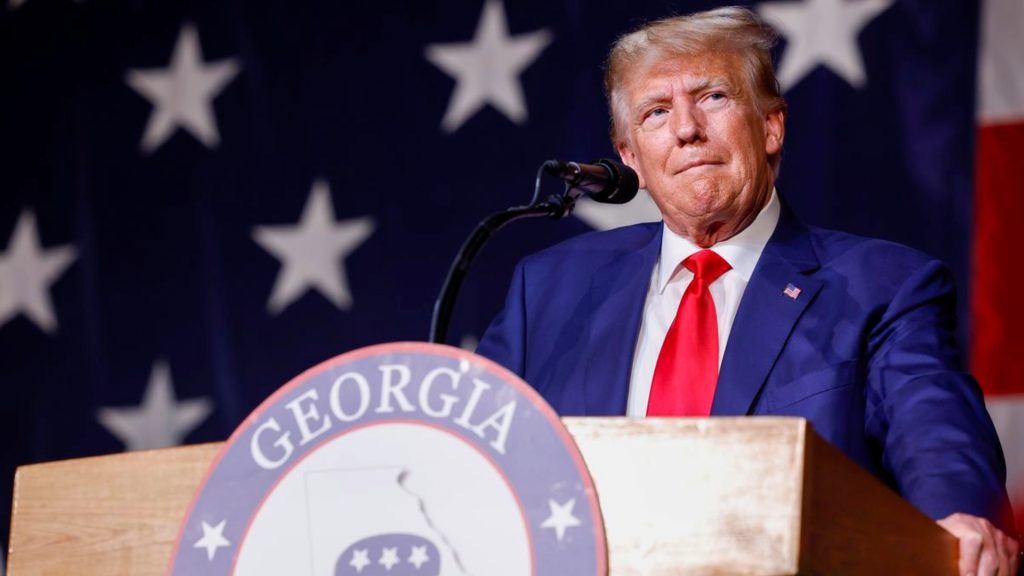
Trump and his co-defendants are faced with racketeering charges in Fulton County, accused of trying to overturn President Joe Biden’s victory over Trump in Georgia in 2020.
Trump And Co-Defendants Plead Not Guilty
The former president and the remaining defendants in the case have maintained pleas of not guilty to all charges.
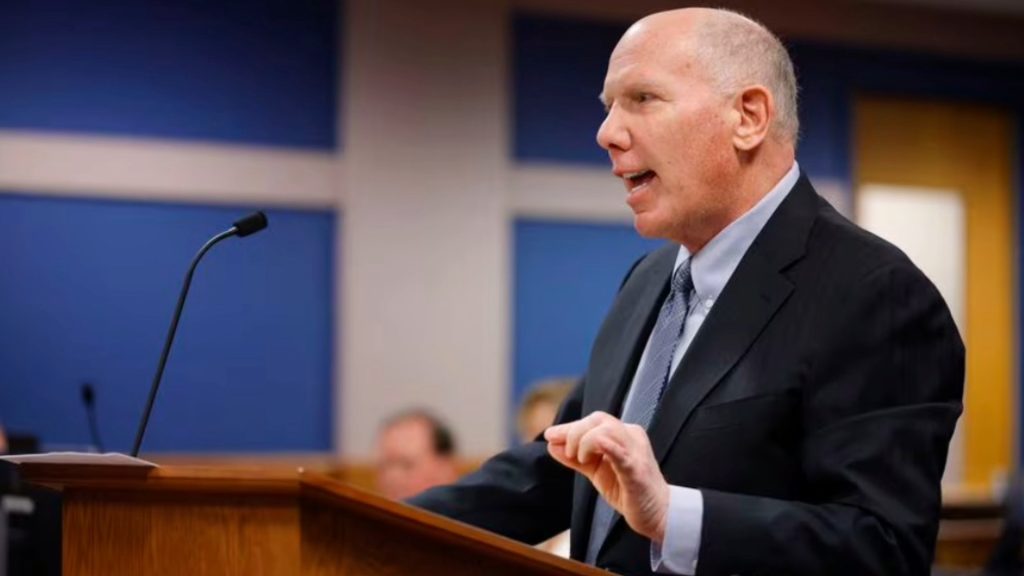
Steve Sadow, Trump’s lead defense attorney, in a statement to X, formerly known as Twitter, on Monday said that President Trump and the other defendants, who they believe have been unfairly accused, have together filed a motion asking the Court to issue a certificate of immediate review of its decision denying their pretrial First Amendment challenges.
Indictment Criminalizes Core Political Speech, Defense Says
“The motion powerfully expresses that the Indictment wrongfully criminalizes core political speech and expressive conduct protected by the First Amendment,” Sadow added.
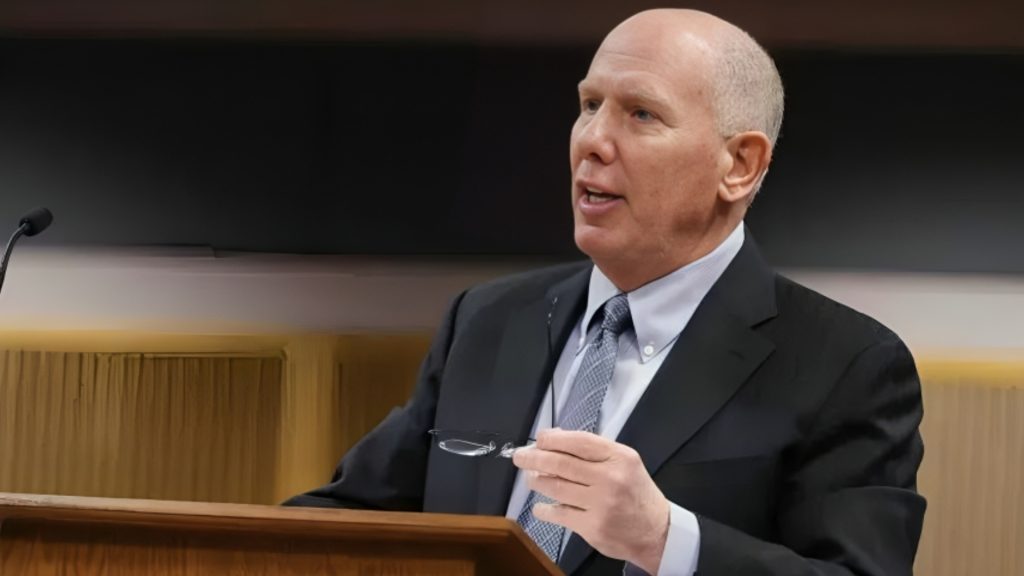
The statement conveyed that there cannot be democracy without robust and uninhibited freedom of expression. It suggested that, for various reasons, including these, “the Court’s Order is ripe for pretrial appellate review.”
Trump Reaffirms His Stance
Trump once again said in his motion on Monday that he and the other defendants affirm that what they said and did, all of which are included in the indictment, which was brought by Fulton County District Attorney Fani Willis, are “core political speech related to the 2020 Presidential Election.”
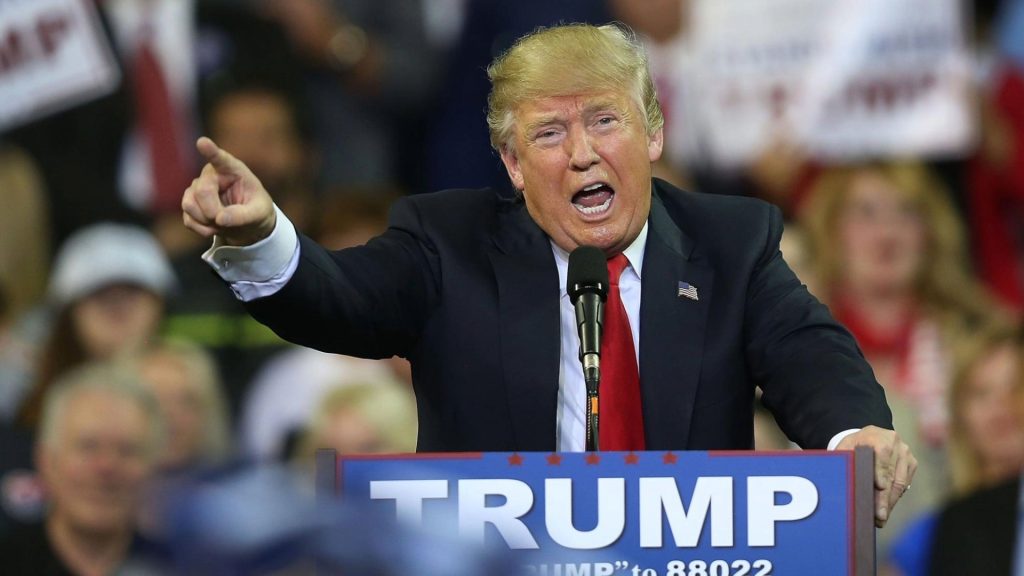
The filing also questions why prosecutors didn’t specify what kind of “criminal conduct” the defendants’ speech promoted outside the context of promoting views on the 2020 Presidential election.
Trump’s Immunity Defense And Supreme Court Influence
Trump and the others he’s charged with still have many other pending motions seeking to throw out their charges without a trial.
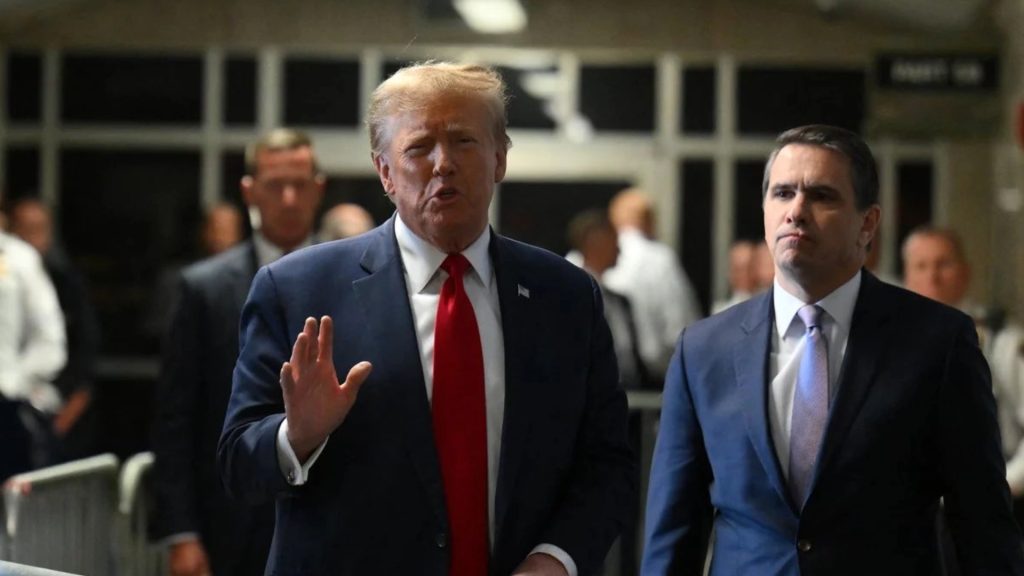
Those motions include Trump’s argument that he’s immune as a former president and it could be influenced by the Supreme Court’s decision on a similar defense he used for a different case related to interfering in a federal election in Washington, D.C.
Free Speech Is Not Without Restrictions
In his 14-page order last week, McAfee wrote that “free speech—including political speech— is not without restriction.” He also stated that “speech integral to criminal conduct, fraud, or speech presenting an imminent threat that the Government can prevent” is excluded from First Amendment protections.
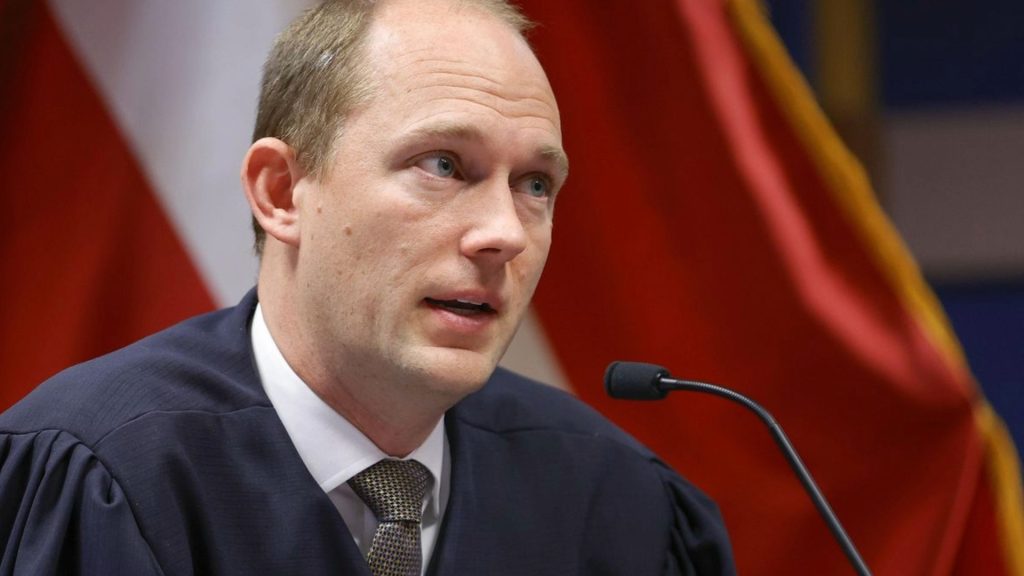
The judge also said that only a jury has the power to determine if Trump’s speech was “carried out with criminal intent,” as prosecutors charge.
Willis Fights To Maintain Position In Trump Prosecution
Last month, Willis also filed a motion on Monday requesting to block Trump’s appeal of McAfee’s ruling. The ruling permitted her office to stay on the case after questions regarding conflict of interest arose because of her prior romantic relationship with the lawyer she hired to manage Trump’s case, Nathan Wade.
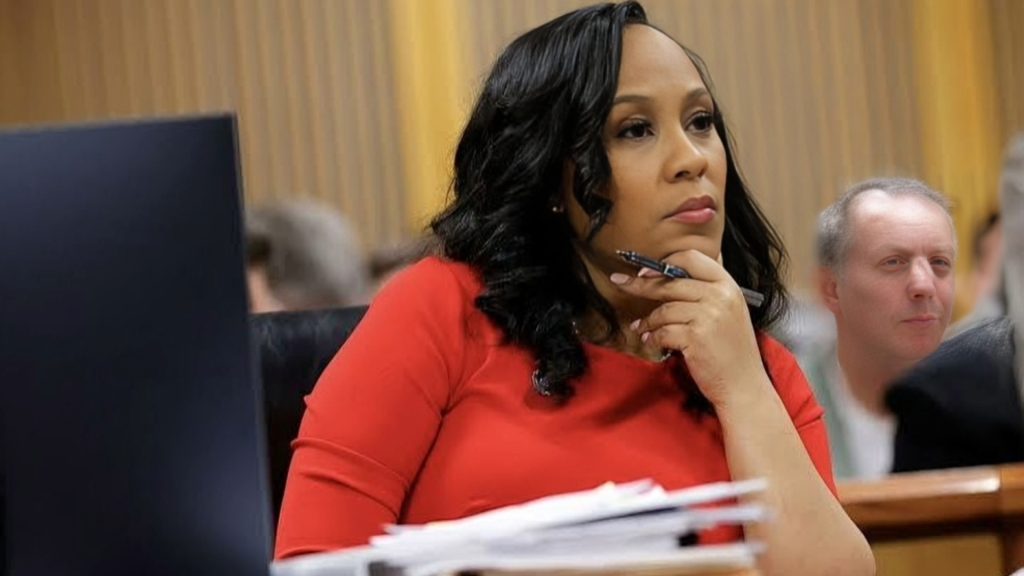
McAfee ruled that the district attorney could proceed with leading the prosecution against Trump and his co-defendants as long as Wade stepped aside. “There is simply no trial court error to be found in the decision to deny disqualification,” Willis wrote.
McAfee’s Critique Of Willis
Just to be clear, McAfee wasn’t complimentary of Willis. Even though there wasn’t a real conflict, he said in his ruling that it doesn’t mean the Court approves of the tremendous lapse in judgment or the unprofessional manner of the District Attorney during the evidential hearing.
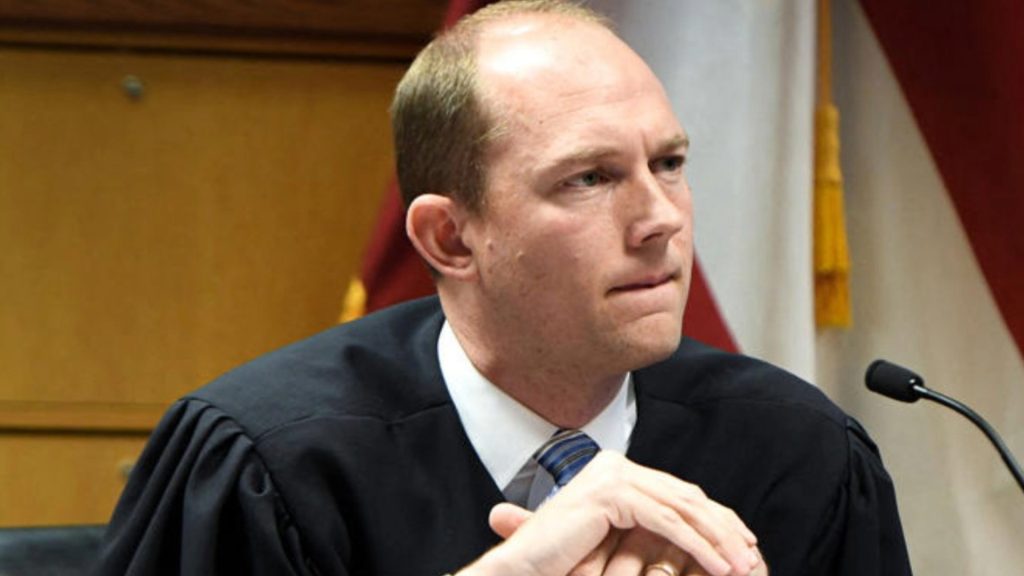
Instead, the judge’s view is that under Georgia law, simply making repeated bad choices does not qualify as an actual conflict. The trial court is obligated to limit its consideration to the pertinent issues and the applicable law presented before it.
Questioning Testimony And Condemning Racial Implications In Willis’s Actions
The judge also wrote that “an odor of mendacity remains” and that “reasonable questions about whether the District Attorney and her hand-selected lead SADA testified untruthfully about the timing of their relationship further underpin the finding of an appearance of impropriety and the need to make proportional efforts to cure it.”
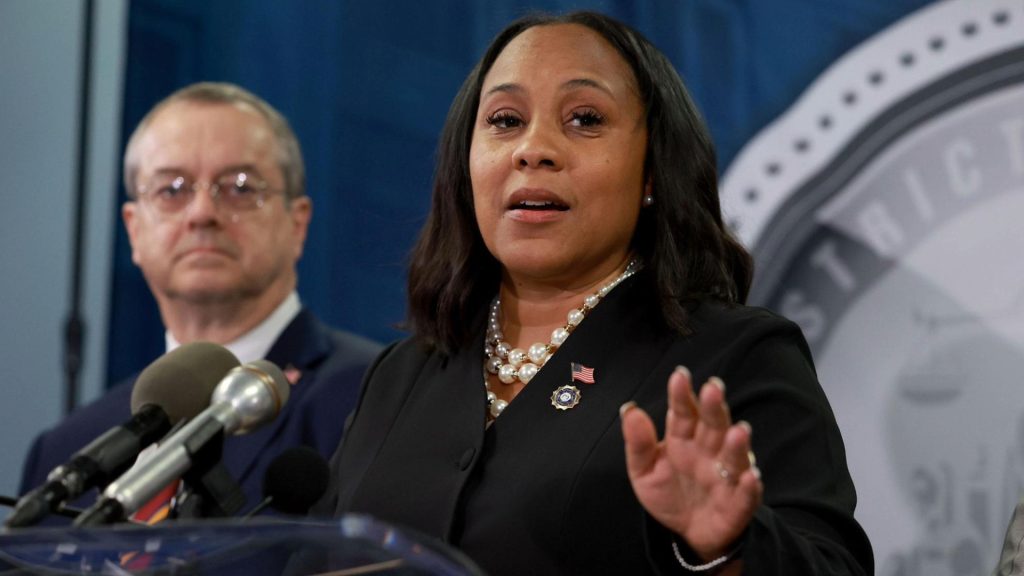
The judge also condemned a speech Willis earlier gave whose effect, McAfee wrote, “was to cast racial aspersions at an indicted Defendant’s decision to file this pretrial motion.”
Disqualifying Willis Would Have Delayed The Case Further
However, he decided that the speech didn’t go as far as to deny a fair trial or need her to step down. While the accusations didn’t alter the facts of the charges against Trump and his co-defendants, they still put the prosecution at risk.
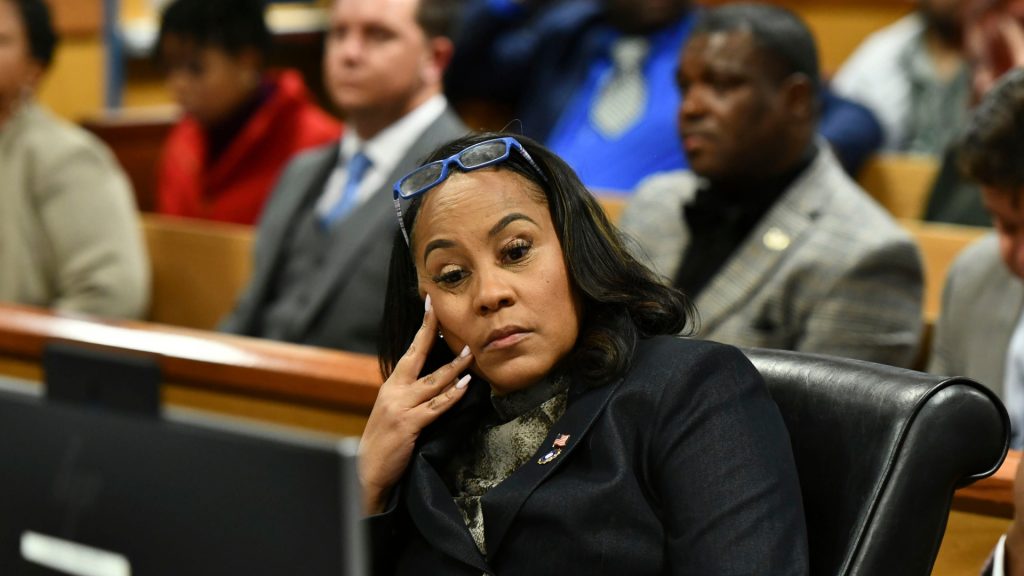
If Willis’s office were disqualified, a new prosecutor would need to be appointed by a Georgia state prosecutors’ council to handle the case. This would cause further delays in the process.
Donald Trump’s Miserable Week
After experiencing a string of legal setbacks, witnessing a significant drop in the stock of his Trump Media & Technology Group, and seeing President Joe Biden’s popularity rise in the polls, it’s clear that Donald Trump had a particularly bad week.
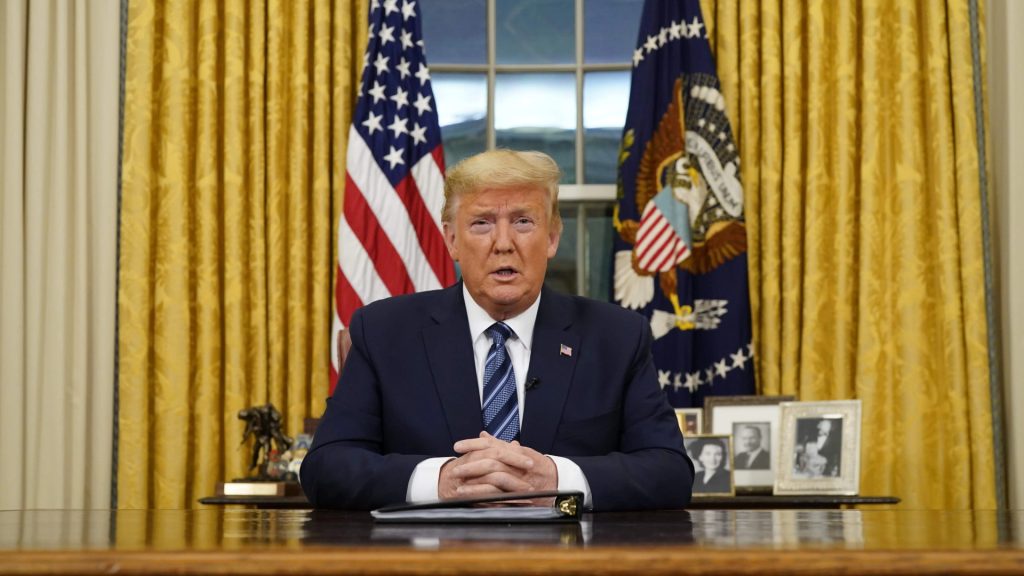
In Georgia, Fulton County Superior Judge Scott McAfee upheld the criminal indictment against the former president on Thursday.
Ruling Brings Trial Date Closer
McAfee’s ruling brings the trial date closer, which is probably what Trump’s lawyers wanted to avoid.
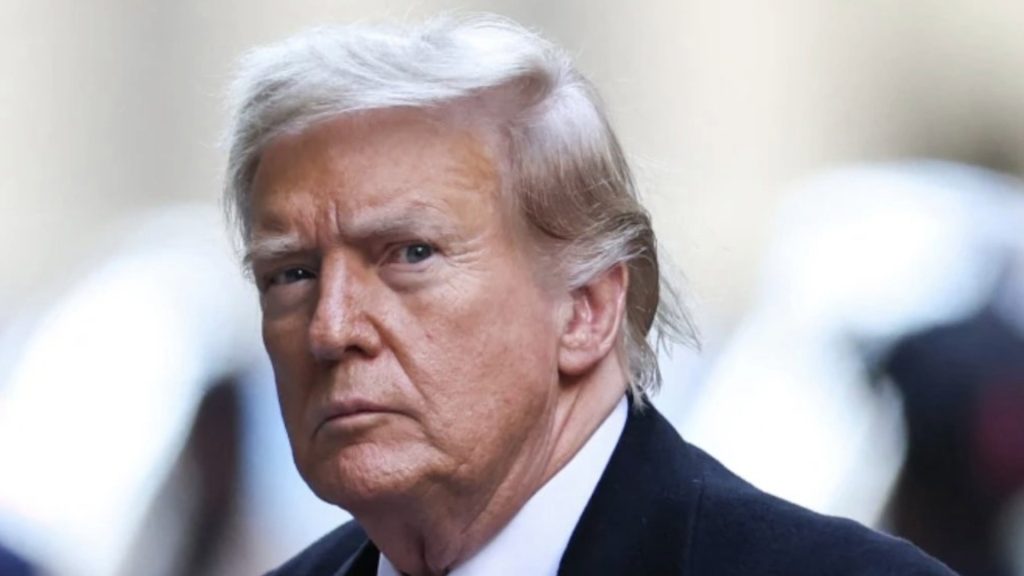
Even though the trial date hasn’t been set, Fulton County District Attorney Fani Willis hinted that she could be prepared for trial by as early as August.
Hush Money Trial Looming Too
In New York, on Wednesday, Judge Juan Merchan turned down Trump’s plea to postpone the beginning of his trial concerning the payment of “hush money” to adult film star Stormy Daniels before the 2016 election.
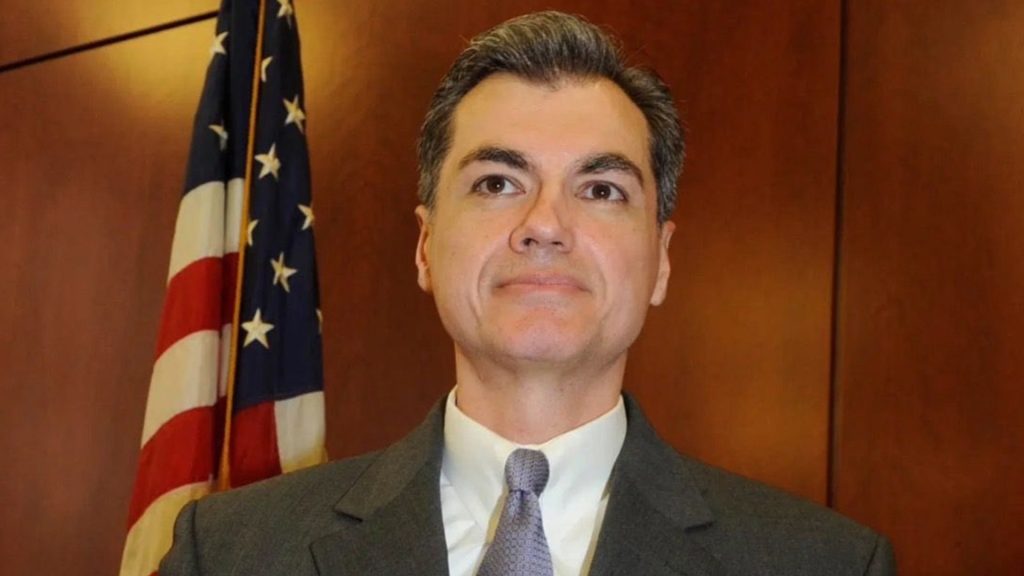
Trump has sought to invoke presidential immunity, arguing that he shouldn’t be prosecuted for “official acts,” such as the tweets he made while serving as president. However, Merchan ruled that Trump waited too long to bring up this issue.

